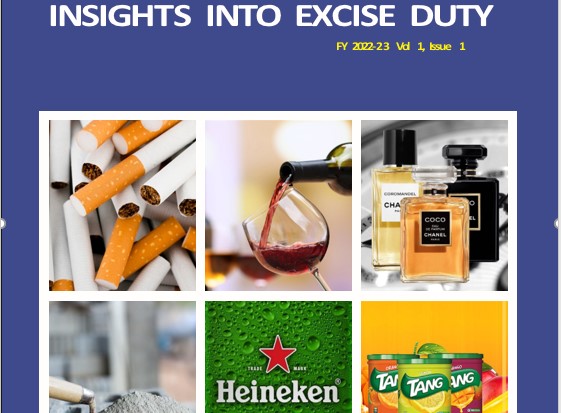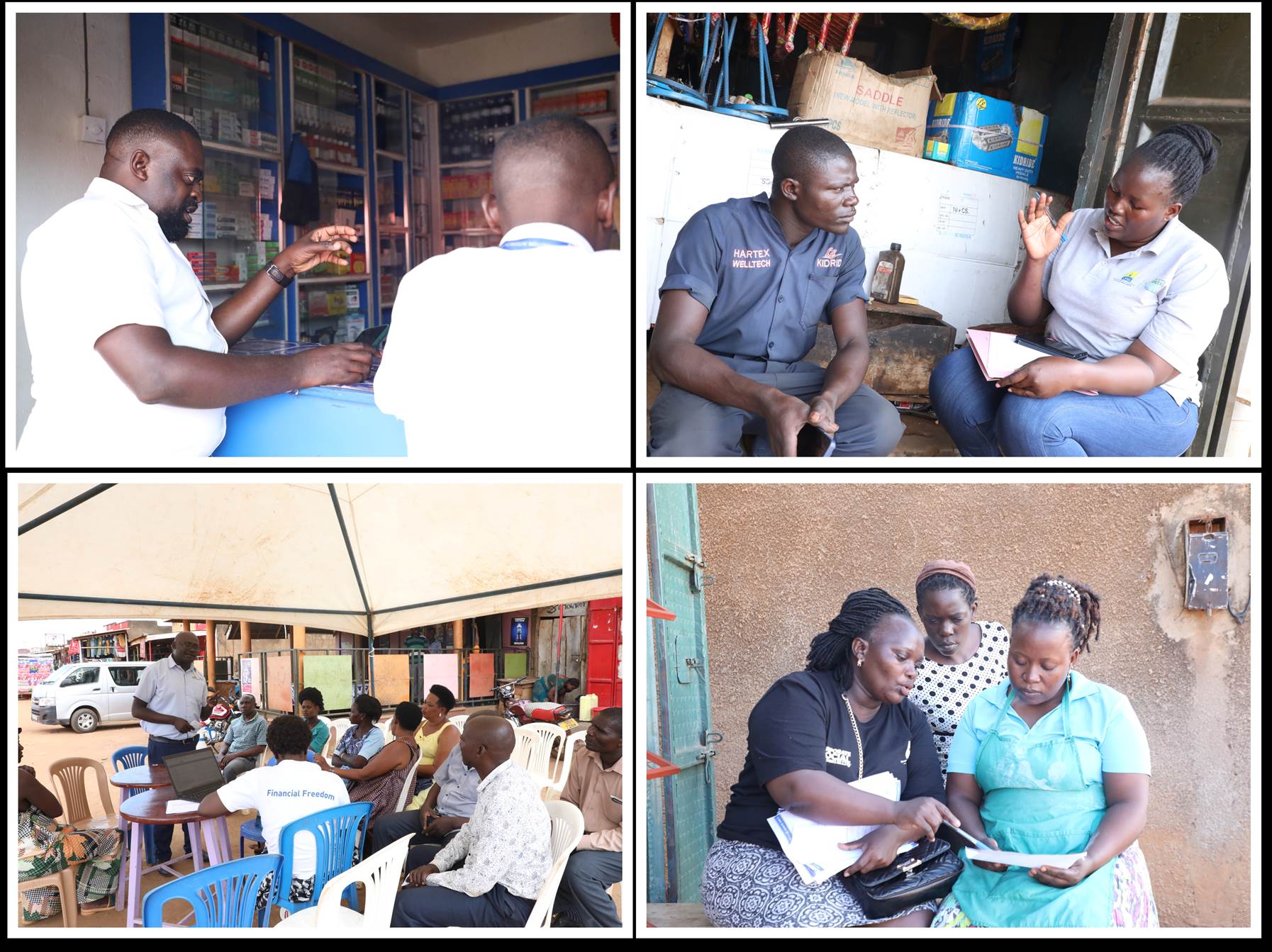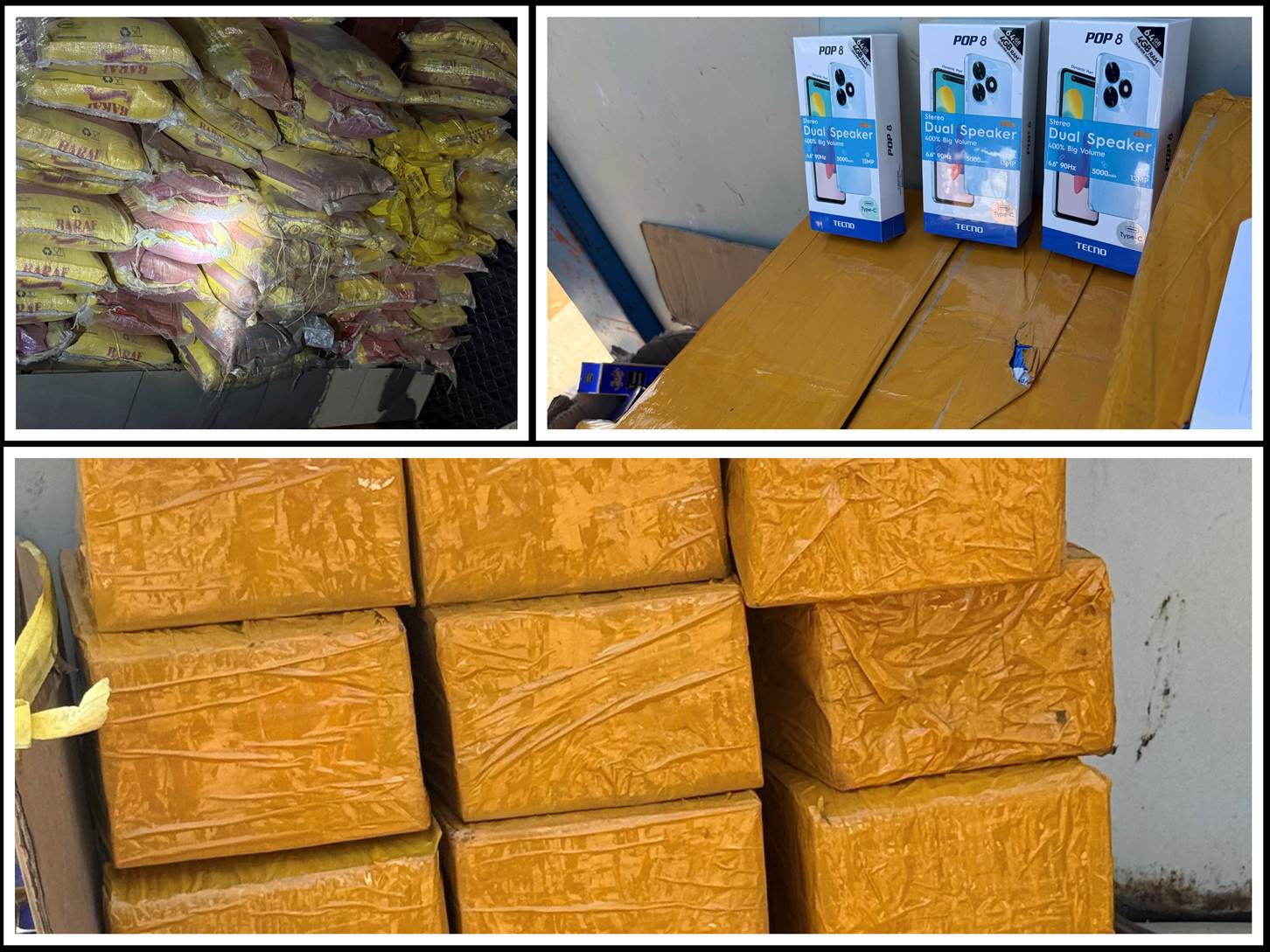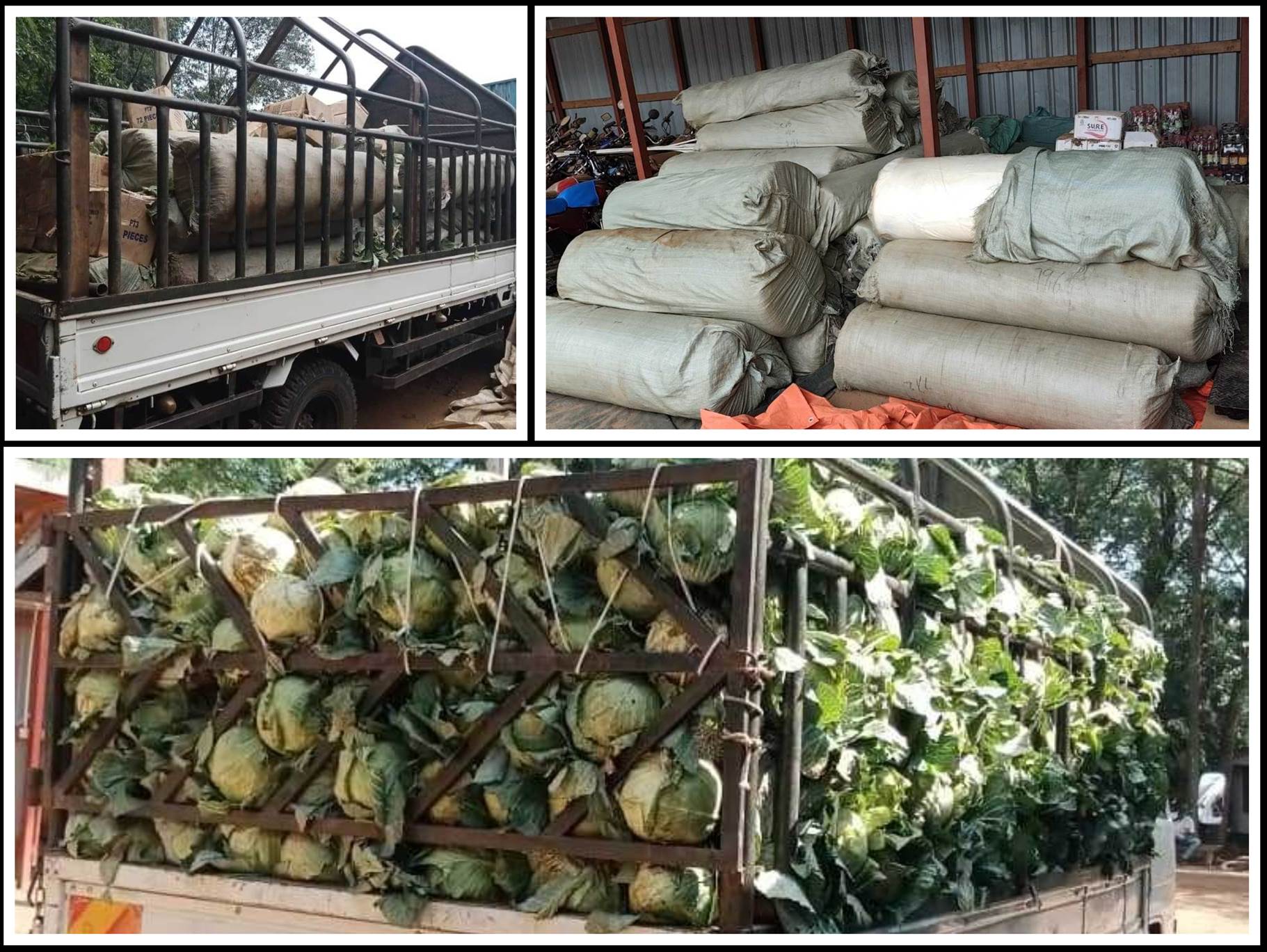What is Excise duty?
Excise duty is a tax on consumption of specified goods and services. It is collected to generate revenue as well as regulate consumption of certain goods and services by making them slightly expensive. It is also collected on imported items some of which can be manufactured in Uganda. In this way, Government protects domestic industry from stiff competition of cheap commodities imported into Uganda
How is Excise duty charged?
It is administered under the Excise Act, 2014 while the changes in the rates of duty are listed in the 2nd schedule of the Excise Duty Act 2014 of the Laws of Uganda as amended. This spell out the excise duty rates chargeable on excisable goods and services.
Why are some rates in the schedule in percentage while others are shillings per quantity?
Excise duty rates can be ad valorem or specific. Ad valorem rates are a fixed percentage assessed on the value of goods at ex- factory price while specific rates are fixed amounts for each unit of a good or service sold, such as cents per kilogram.
Tom: Which goods and services are excisable?
These items are spelt out in Part 1 of the second schedule of the Excise Duty Act. The list is always updated when there is a change in tax legislation. Excise duty in respect of excisable goods and services
| No. | Item | Excise Duty Rate |
| 1. | Cigarettes | |
| a) | Soft cap | |
| i) | Locally manufactured | Ushs. 55,000 per 1000 sticks |
| ii) | Imported | Ushs. 75,000 per 1000 sticks |
| b) | Hinge lid | |
| i) | Locally manufactured | Ushs. 80,000 per 1000 sticks |
| ii) | Imported | Ushs. 100,000 per 1000 sticks |
| c) | Cigars, cheroots, cigarillos containing tobacco | 200% |
| d) | Smoking tobacco, whether or not containing tobacco substitutes in any proportion | 200% |
| e) | Homogenized or reconstituted tobacco | 200% |
| f) | Other | 200% |
| 2. | Beer | |
| a) | Malt beer | 60% or Ushs. 1860 per litre whichever is higher |
| b) | Whose local raw material content, excluding water, is at least 75% by weight of its constituent | 30% or Ushs. 650 per litre whichever is higher |
| c) | Beer produced from barley grown and malted in Uganda | 30% Ushs. 950 per litre whichever is higher |
| d) | Opaque beer | 30% or Ushs 650 per litre whichever is higher |
| 3. | Spirits | |
| a) | Undenatured spirits made from locally produced raw materials | 60% or or Shs 1500 per litre whichever is higher |
| b) | Undenatured spirits made from imported materials | 100% or UShs. 2500 per litre whichever is higher |
| c) | Ready to drink spirit | 80% or UShs. 1300 per litre whichever is higher |
| 4. | Wine | |
| a) | Made from locally produced raw materials | 20% or UShs. 2000 per litre whichever is higher |
| b) | Other wines | 80% or UShs. 8000 per litre whichever is higher |
| 5. | Non alchoholic | |
| a) | Non-alcoholic beverages, excluding fruit or vegetable juices | 12% or 200 per litre whichever is higher |
| b) | Fruit juice and vegetable juice, except juice made from at least 30% of pulp from fruit and vegetables grown in Uganda | 12% or Shs 250 per litre whichever is higher |
| c) | Powder for reconstitution to make juice or dilute to taste drinks, excluding pulp | 15% of the value |
| 6. | Mineral water, bottled water and other processed water purposely for drinking | 10% |
| 7. | Cement | Ushs. 500 per 50 kgs |
| 8. | Fuel | |
| a) | Motor spirit (gasoline) | Ushs. 1350 per litre |
| b) | Gas oil (automotive, light, amber for high speed engine) | Ushs. 1030 per litre |
| c) | Other gas oils | Ushs. 630/- per litre |
| d) | Gas oil for thermal power generation to national Grid | Nil |
| e) | Illuminating kerosene | Ushs. 200 per litre |
| f) | Jet A1 and aviation fuel | Ushs. 630/- per litre |
| g) | Jet A1 and aviation fuel imported by registered airlines, companies with designated storage facilities or with contracts to supply airlines | Nil |
| 9. | Cane or beet sugar and chemically pure sucrose in solid form | Ushs. 50 per kg |
| 10. | Cane or beet sugar for industrial use | 0% |
| 11. | Sacks and bags of polymers of ethylene and other plastics under its HS codes 3923.21.00 and 3923.29.00 except vacuum packaging bags for food, juices, tea and coffee, sacks and bags for direct use in the manufacture of sanitary pads | 120% or Shs. 10,000 per kilogram of the plastic bags |
| 12. | Cosmetics and perfumes | 10% |
| 13. | Telecommunication services | |
| a) | Airtime on mobile cellular, landlines and public pay phones | 12% of the fee charged; |
| b) | Over the top services | Ushs 200 per user per day of access; |
| c) | Internet data | Nil; |
| d) | Money transfer or withdrawal services, including transfers and withdrawal services by operators licensed or permitted to provide communications or money transfers or withdrawals but not including transfers and withdrawal services provided by banks | 15% of the fees charged |
| e) | Value added services | 20% |
| f) | Mobile money transactions on receiving, payments and withdrawals | 1% of the value of the transaction |
| g) | Incoming international calls, except calls from the Republic of Kenya, the Republic of Rwanda and the Republic of South Sudan | USD $0.09 per minute |
| 14. | Ledger fees, ATM fees, withdrawal fees and periodic charges and other transaction and non-transaction charges excluding loan related charges periodically charged by financial institutions | 15% of the fees charged |
| 15. | Motor vehicle lubricants | 10% |
| 16. | Sugar confectioneries, chewing gum, sweets and chocolates | Nil |
| 17. | Furniture | |
| a) | Specialized hospital furniture | Nil |
| b) | Furniture manufactured in Uganda using local materials but excluding furniture which is assembled in Uganda | Nil |
| c) | Other furniture | 20% |
| 18. | Cooking oil | Ushs 200 per litre |
| 19. | Motorcycles; at first registration | Ushs 200,000 |
| 20. | Construction materials for development of industrial parks or free zones by a developer whose investment is at least two hundred million United States Dollars | Nil |
| 21. | Construction materials of factory or warehouse exclusive of those available on the local market, locally produced raw materials and inputs to an operator within the industrial park, free zone, single factory or other business outside the industrial park or free zone who meets the following requirements— A minimum investment capital of 1 million US dollars in the case of a foreigner or USD 300,000 for an investment anywhere and USD 150,000 for investment placed upcountryCarries on business inAgro processingFood processingMedical appliancesBuilding materialsLight industryAutomobile manufacturing and assembly | Nil |
| Household appliancesFurnitureLogistics and warehousingInformation technologyCommercial farmingFootwearTyresMattressesToothpaste70% of raw materials used are sourced locally subject to availabilityDirectly employs a minimum of 70% Ugandans Citizens be earning an aggregate wage of at least 70% of the total wage bill | ||
| 22. | Locally produced materials for construction of premises and other infrastructure to a hotel or tourism developer whose investment capital is at least fifteen million United States Dollars of a room capacity exceeding one hundred guests. | Nil |
| 23. | Furnishings and fittings or locally produced materials for construction of premises and other infrastructure to a hospital facility developer whose minimum investment capital is at least ten million United States Dollars and who develops a hospital at the level of a national referral hospital with capacity to provide specialised medical care. | Nil |
Who pays excise duty?
Excise duty is paid by the manufacturers of the specified locally manufactured goods when such goods exit the manufacturer’s premises, by service providers on the date of provision of the service or by importers at the time of import of an excisable good.
How is excise duty payable determined?
Local Excise duty is payable on the ex-factory price which includes raw material costs, direct labor costs, overhead costs, non-production costs plus profit plus all selling and administrative charges; on the sales value of airtime and talk time, internet data, money transfer, mobile money transaction and bank related fees.
How does someone prove they are registered for Excise duty?
URA issues an excise duty registration certificate to a person who deals in excisable goods and this certificate is renewed annually. It is issued in respect of manufacturer or importer and his premises.
Are there any circumstances under which Excise duty can be waived or exempted?
Under the following conditions, Excise duty may not be charged;
- Where the goods in question were destroyed accidentally by fire or other avoidable cause while in the business premise
- Expired or decants, spoilt which have been destroyed with the permission of the Commissioner General
- Exported goods with proper documents
How is excise duty charged?
Excise duty is payable on the ex-factory price of the manufactured goods using either a specific or ad valorem duty rate. Ex-factory price simply refers to that price the item is sold at the factory.
The normal ex-factory price of the good shall include raw material costs, manufacturing costs, labour costs, profit margin, bank charges and interest and all other costs, charges and expenses incidental to the factory production and sale.
The value of an excisable service is the amount exclusive of any tax and duty, paid or payable by the final consumer in consideration for the service
The taxable value of money transfer services by cellular service providers, money transfer agencies and other financial service providers shall be the fees charged for a particular money transfer service transaction
How is excise duty computed?
We shall illustrate computation of excise duty using three examples; one computing local excise duty payable using an ad valorem rate, another using specific rate and the third example will illustrate excise duty payable at importation.
Illustration 1 – Excise duty payable using an ad valorem rate
Kencho U Ltd manufactures bottled water which it sells at an ex-factory price of Ugx 650 per bottle. If it makes 100,000 bottles, how will it compute excise duty payable?
Bottled water is taxed at a rate of 10%. Kencho will need to:
First multiply the number of bottles made by the ex-factory price per bottle. Meaning it will get 100,000 X 650 = 65,000,000. It will then apply 10% on the excise duty value ie 10% X 65,000,000 = 6,500,000
Illustration 2 – Excise duty payable using a specific rate
Kencho U Ltd manufactures cane sugar at an ex-factory price of Ugx 2,200 per kilogram. A bag of 50 kgs therefore costs Ugx 110,000. If Kencho manufactures 1,000 bags, how will it compute excise duty payable?
According to the above table, a kilo of sugar is taxed at a specific rate of 50 shillings per kg. Kencho will need to multiply the number of bags by the kilograms in a bag by the rate per kilogram. Meaning you will get 1,000X 50X50 = 2,500,000 payable as excise duty.
Illustration 3 – Excise duty payable at importation
Kencho imported a consignment of 15,000 wines at an ex-factory cost of 2 dollars per bottle. The total cost is 30,000 dollars. They paid 100 dollars for insurance and 120 dollars for freight up to Mombasa. Calculate the excise duty payable
Step I – Determine Customs value

Customs Value = Cost + Insurance + Freight, meaning 30,000 + 100 + 120 = 30,220
Step II – Change the customs value to dollars ie 30,220 X prevailing exchange rate of 3,800 = 114,836,000
Step II – Determine the taxes
- Wines attract an import duty of 25% since they are finished goods, so 25% X
Customs value = 25% of 114,836,000 = 28,709,000
- Apply excise duty at a rate of 70%.
Excise duty = 70% X (customs value + import duty) = 70% of 143,545,000 = 100,481,500 shillings
How do the manufacturers pay this tax to the URA?
Certified manufacturers of these specific products are required to file monthly returns. These returns are submitted to URA electronically by the 15th day of the month following the one in which the goods were sold out. A person liable to pay excise duty shall pay the duty on the date the persons files a return or in case of an assessment pay within 45 days after reciet of the assessment. The taxes arising out of this return should be paid using several platforms including bank, payway, mobile money, VISA card, Master card etc.
What happens if I fail to file returns and pay?
Failure to comply leads to penalties as stated below
| Offence | Penalty |
| Failure to apply for a license | Penalty equal to amount of duty payable during the period commencing with the last day of the application period until the person files an application for the license or until the commissioner grants the license whichever is earlier |
| Failure to furnish a return | Two hundred thousand shillings or interest charge for the period for which the return is outstanding whichever is greater |
| Failure to pay excise duty by due date | Interest on unpaid duty at a rate of 2% per month compounded, for the duty which is outstanding |
| Failure to maintain proper records | Penalty equal to the amount of duty payable or 250,000 whichever is greater |
What is URA doing to ensure compliance to excise duty?
URA in partnership with Uganda National Bureau of Standards (UNBS) has introduced the Digital Tracking Solution (DTS) as a track & Trace platform that sends production and importation data for specific products immediately, to both URA and UNBS. The Digital Tracking Solution involves the stamping of products with a digital stamp on all excisable goods; starting with wines, spirits, water, cigarettes, beer and soda and any other product as may be gazatted by the Commissioner.
Why did URA introduce the Digital Tax Stamps?
URA introduced digital tax stamps to address the following challenges:
- Suppression of production and import figures
- Suppression of local excise duty payable
- Increased Illicit trade
- Increased smuggling of excisable products











Hello, I have question recently the govt has implemented anew customs tax for Entebbe airport, I have read online that passengers with personal items exceeding 500 US dollars shall pay it. Can you can help break down the calculations for me for example if I had 65 inch screen worth 600 US dollars , plus home theater worth 500 US dollars plus dell laptop 750 US dollars because since I thought since they are personal items they wouldn’t be taxed.